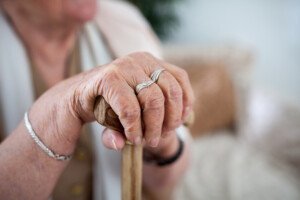 Will an autism friendly senior living complex ever exist?
Will an autism friendly senior living complex ever exist?
The typical upscale retirement community environment is hypersocial!
I find it unsettling. No matter how well I take care of my body, I’ll one day be infirm, unless I’m lucky enough to pass in my sleep at 99 after being fairly healthy right up to the last minute.
At any rate, no matter how healthful my diet, how low my blood pressure and how limber and strong my body – the aging process will eventually reel me in.
One day my elderly father and I took a tour of a sprawling, upscale retirement living complex that was advertised as a “cruise ship on land.”
It had seven restaurants. It had free transportation vans that would take residents into town.
There were three tiers of living: 1) Independent – these were the residents who, though physically independent, wanted the peace of mind of living inside a very secured complex with onsite medical staff, 2) Semi-dependent such as a resident who needed assistance with some daily activities of living or ongoing medical attention, and 3) Residents who required skilled nursing care.
The gigantic building had an onsite fitness center, small grocery store, pharmacy, hair salon, barber shop, arts and crafts room, meeting rooms, a movie theatre and more.
The lovely apartments had pull-cords for medical emergencies and views to well-kept grounds and flourishing gardens.
This was an ideal place to live for elderly people who no longer felt secure about residing in a single-family house or common condo or apartment in a typical residential community.
An autism friendly senior retirement community?
At this “cruise ship on land,” as well as other such places that I’ve seen advertised on TV and in marketing brochures, social activities are heavily encouraged.
Our very cheery tour guide REALLY EMPHASIZED how socially active the place was.
I saw groups of seniors hanging out together wherever we were during the tour.
The place was bustling with people in various lobbies who were obviously residents, but I also saw younger people here and there leading groups. It totally lived up to its moniker: a cruise ship on land.
The guide commented, “We encourage residents to join in the activities and have fun. We have dances, ice cream parties, bingo nights, bridge, wine tasting, pretty much anything you can imagine. Nobody gets lonely here.”
I’m on the Autism Spectrum

©Lorra Garrick
At the time of this tour, I had not known I was autistic. I would get my diagnosis several years later.
However, I’d always had a problem fitting in with people. I would often think to myself, “All my life, no matter what group I was ever part of – I never fit in.”
I was troubled by what that tour guide said. According to her line of logic, if a person’s been an introvert all their life — they’ll suddenly want to mingle with people just because their hair is all white, joints are arthritic and must take heart medications.
Having age-related kidney insufficiency, needing incontinence pads and having bum knees is the cure for introversion?
If I were 85 and living at the cruise ship on land, there could be a circumstance under which I’d feel quite comfortable:
I’m at the onsite fitness center, explaining to a bunch of other old people (able-bodied) why they shouldn’t hold onto a treadmill. I could go on and on about this and never tire of explaining it.
However, put me at a table in a party room with these people at an “ice cream social,” and I’d feel totally out of place and awkward. Unless … suddenly they all wanted to know how holding onto a treadmill could result in repetitive stress injuries to the hips.
I’ll be just as introverted when I’m 85 as I am now, being able to scale walls at a climbing gym and lift heavy barbells.
A neurotypical introvert and especially an autistic person are not going to suddenly feel at ease being around clusters of people JUST BECAUSE their skin is shriveled, hands are peppered with age spots and hips have metal parts.
At the time my father had expressed an interest in moving into a retirement living community, I was suddenly seeing all sorts of ads for these places — on TV, in magazines and online.
The reigning theme is the social aspect, with ads showing footage or imagery of groups of seniors having a dandy ‘ol time with each other, often sitting in close proximity, sometimes their hands on each other.
I’m not saying they should exclude this aspect from their promotions — being that many neurotypical elderly people, indeed, are quite lonely or gregarious and would love ready-made social opportunities and the chance to make new friends.
But we also can’t leave out that minority of individuals for which solitude is preferred, for which immersion in things and concepts, rather than flesh and blood, brings them great joy.
I got the impression that if an autistic single person who’s verbally articulate and self-sufficient wanted to spend their last few years inside the posh apartment home, they’d be harangued by the social coordinator staff to “get out and meet people.”
On the other hand, if that autistic individual often engaged in stereotypical behavior (such as dynamically stimming around other people) and/or had difficulty executing conversation, the staff would probably leave them be.
I hate to say this, but, it seems that the more “normal” an autistic person presents, the more they’d be expected to leave their apartment and participate in social activities.
At the place my father and I visited, the apartments were arranged like a college dormitory.
This meant you couldn’t get from your apartment to your destination (e.g., fitness center, crafts room, pharmacy, outside for a walk) without potentially passing dozens of people.
You’d quickly become known as some weirdo who never greets your fellow hall mates.
Even in college I found this awkward: feeling I had to greet every person I passed in the corridor lest I be tagged as an oddball.
At a retirement community an autistic person might fast become known as “that man who never looks people in the eye,” or, “that woman who walks right past you like you’re not there.”
- You’d be talked about.
- Your room number would become well-known.
- “What’s wrong with him?”
- “Why’s she like that?”
- “He never comes out.”
- “Nobody knows anything about her.”
Residents are groomed by staff to be hypersocial. This would make these residents more likely to notice non-social residents and view them as strange or having some kind of problem.
If you’re a neurotypical you might be wondering why an autistic or introverted person would want to live in one of these luxury retirement communities.
Why not just move into a smaller, non-upscale senior living complex that doesn’t have staff bouncing all over the place trying to sign everyone up for the next social function?
Well, here’s the problem. My father and I also visited one of these smaller, quieter places.
- It didn’t have onsite medical staff or other amenities that would give someone with an aging, weakening body a sense of safety and peace of mind.
- It didn’t have master chefs preparing healthful and delicious meals.
- It didn’t have an onsite gym, pharmacy or vans going into town.
- The dumpy-looking apartment we looked at smelled of urine. The hallway had an unpleasant odor.
- The premises were right off a busy noisy street.
Back to that bubbly tour guide: I asked her about room service if a resident signed up with the meal inclusion plan (my father and I had had lunch in the dining hall – fabulous food!).
The guide replied, “Oh, we encourage residents to joint the others for meals.”
Every table in the spacious dining room with its hanging elegant light fixtures, looming exotic plants, giant windows and views of gardens was circular and BIG.
I saw no seating set-ups for solitary people; just all those BIG round tables. You’d have no choice but to sit with a bunch of people for every meal unless perhaps you got there right when mealtime began and hoped you’d finish your meal before strangers began sitting at your table.
Upscale, full-amenity retirement communities are designed to accommodate the hypersocial brain.
Old Age Doesn’t Cure Autism

Shutterstock/Cherries
An autistic person is just as autistic at age 75 as they were at age 25.
But these posh, resort-like retirement communities lump all people into one box: “hypersociality.”
Go ahead, check it out yourself: Look at the marketing for luxury retirement communities. They are designed for hypersocial people.
We need a posh retirement community that accommodates autistic people — at any point on the Spectrum — a place where they won’t feel pressure to conform or “act social,” a place where they won’t be pestered by condescending staff to participate in activities.









































